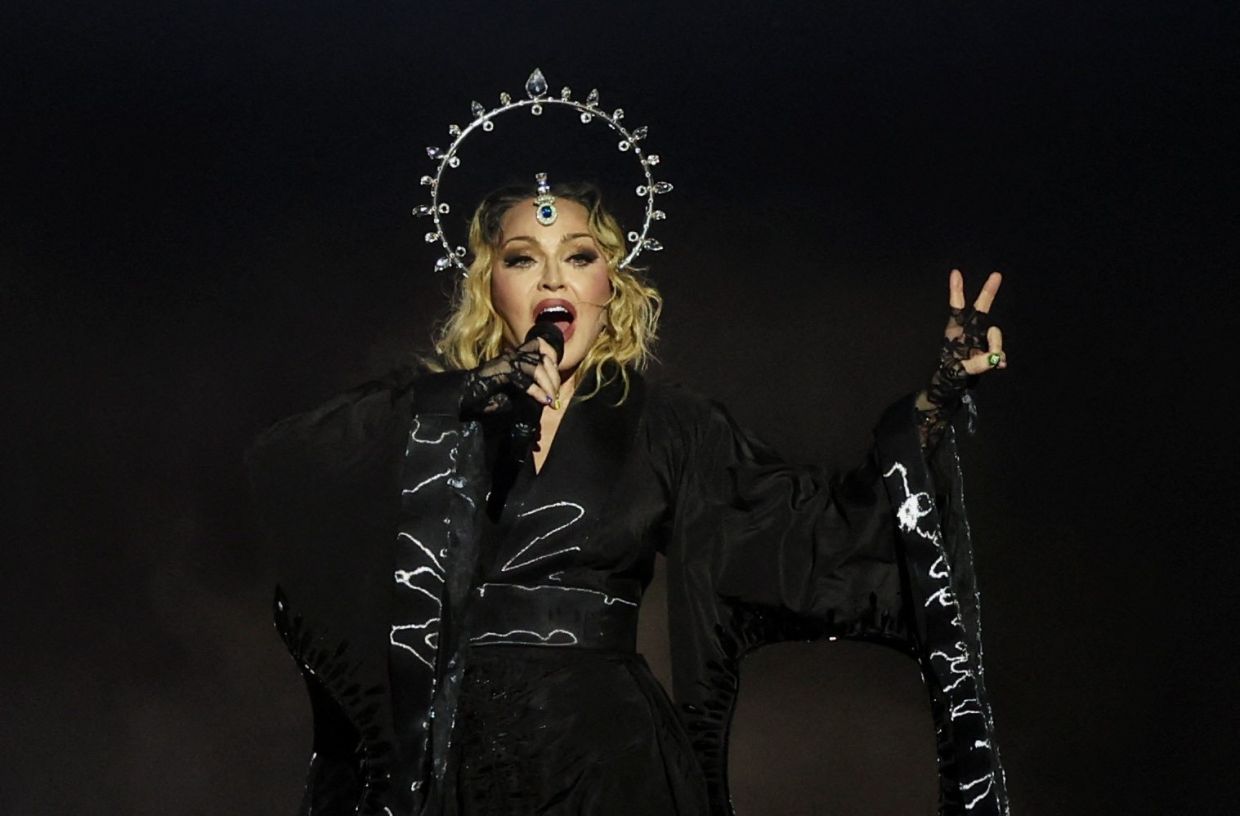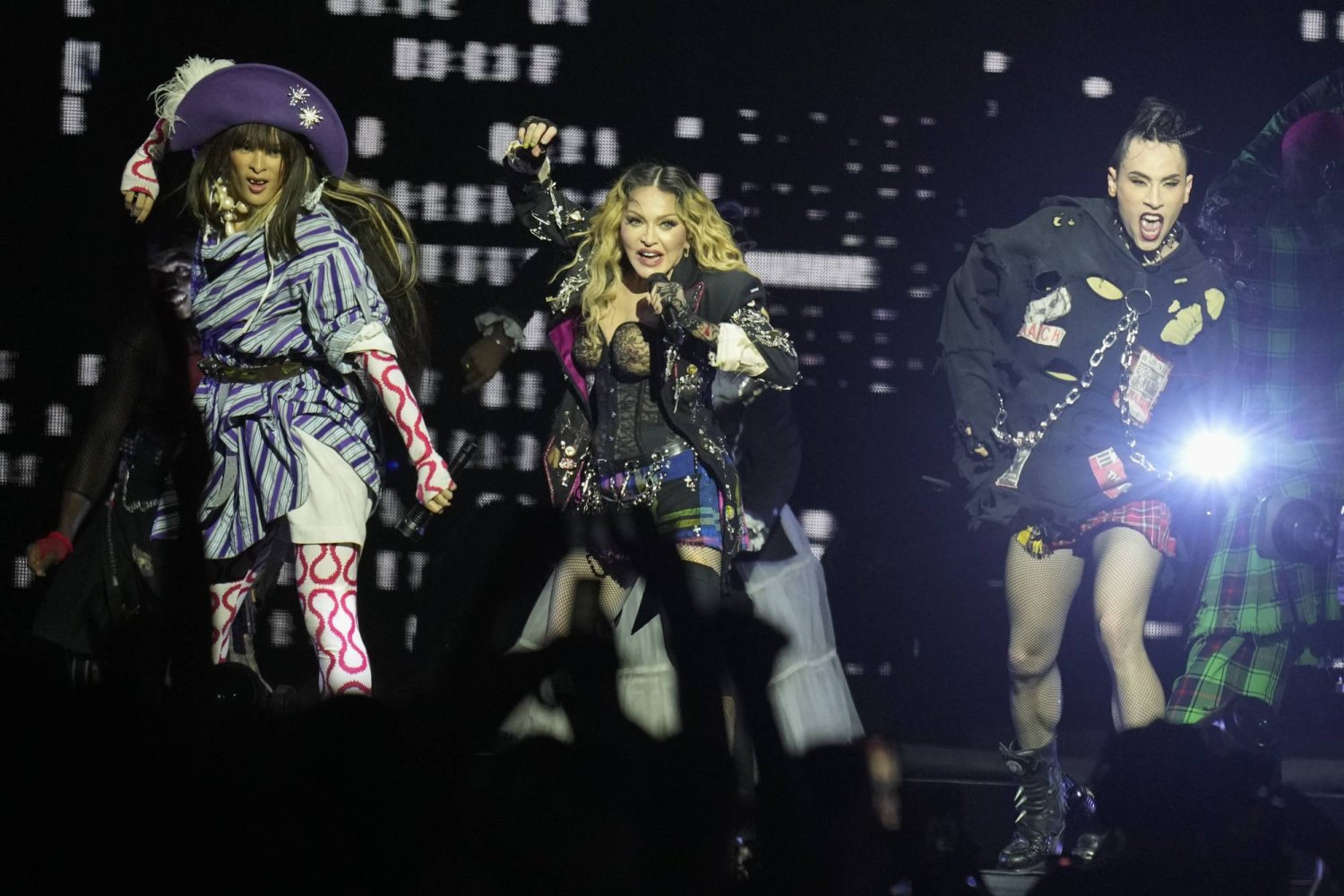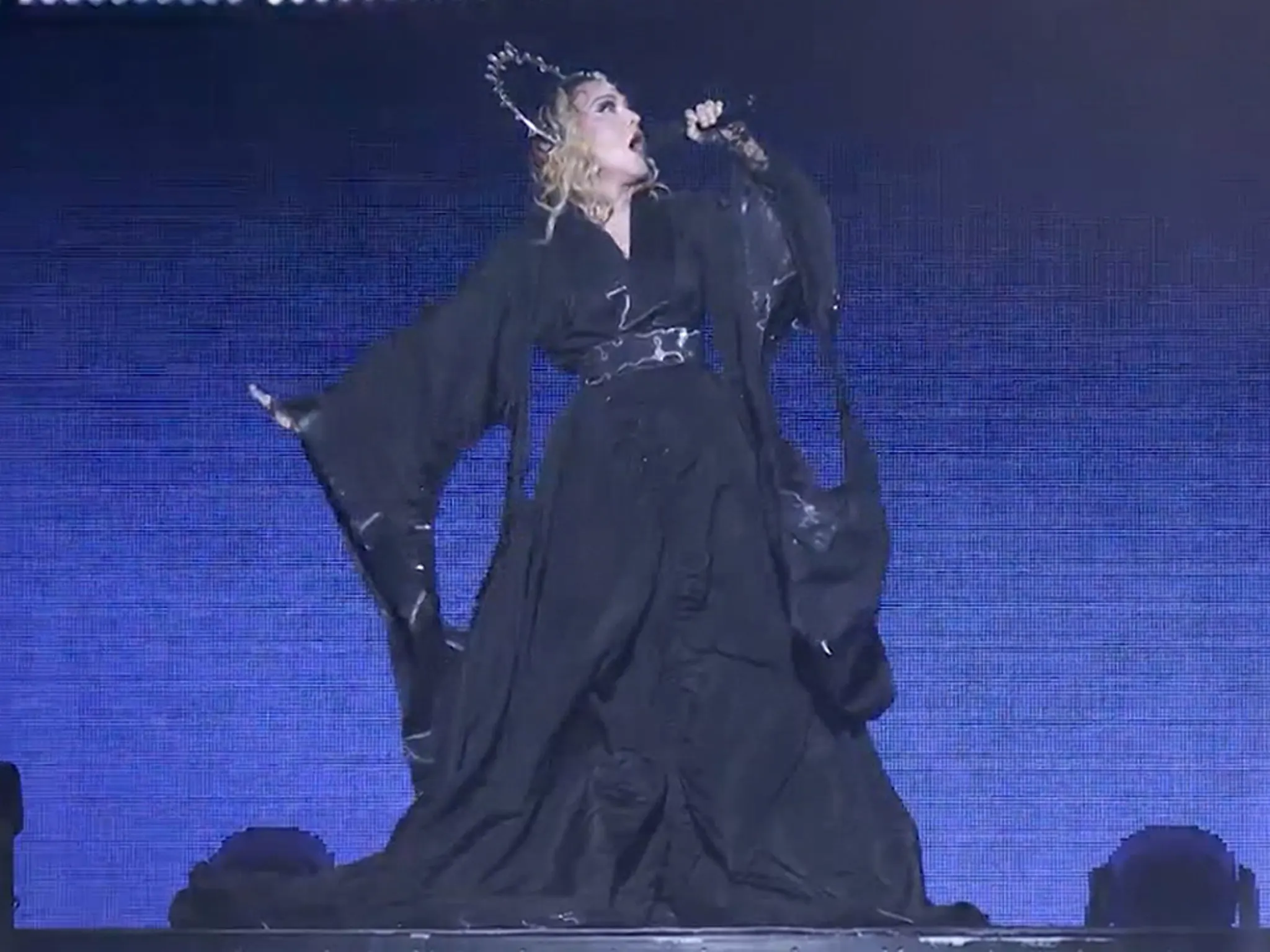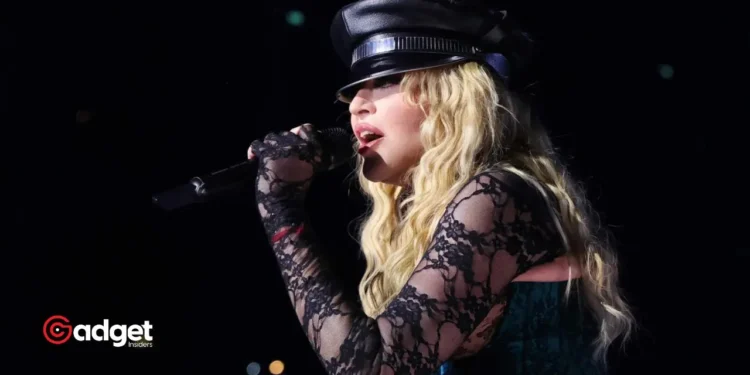On a clear Saturday night, the iconic Copacabana beach in Rio de Janeiro was transformed into an electrifying expanse of music and dance, hosting what was arguably Madonna’s most monumental concert yet. The pop superstar concluded her global The Celebration Tour with a staggering turnout, drawing an estimated 1.6 million people to the Brazilian shoreline, far surpassing her previous record attendance of 130,000 in Paris in 1987.

Madonna’s Concert: The Spectacle of a Lifetime
As the sun set over Rio, anticipation built among fans who had gathered from around the world, some camping out for days to secure a spot close to the stage. The concert kicked off with Madonna’s 1998 hit “Nothing Really Matters,” eliciting a wave of cheers from the tightly packed crowd.
The atmosphere was electric, with the beach lit by the glow of nearby apartments and hotels, while overhead, helicopters and drones captured the sprawling sea of people. Madonna, ever the showstopper at 65, didn’t just perform; she connected with her audience on a profound level.
“Here we are in the most beautiful place in the world,” she declared, pointing to the ocean, mountains, and the iconic Christ the Redeemer statue. “This place is magic,” she added, capturing the hearts of those present with her heartfelt words.
Throughout the night, the pop star revisited her extensive catalog of hits, including classics like “Like A Virgin” and “Hung Up.” The introduction to “Like A Prayer” was a dramatic spectacle, with Madonna shrouded in a black cape, clutching a rosary.
Amidst the music and dancing, there was also a poignant moment during “Live to Tell,” where Madonna paid tribute to those lost to AIDS, a powerful reminder of her activism and impact off-stage.

A Collaboration of Cultures
The concert was not only a celebration of Madonna’s career but also a display of cultural unity, featuring performances with Brazilian superstars Anitta and Pabllo Vittar. This blend of international and local talent underscored the global appeal of the pop star’s music and her influence across cultural boundaries.
Madonna’s free show at Rio de Janeiro’s Copacabana Beach broke the record for biggest standalone concert for any artist in history, male or female, with 1.6 million people. pic.twitter.com/6sDUxdjDpM
— Pop Base (@PopBase) May 5, 2024
Economic and Cultural Impact
The event wasn’t just a musical milestone; it was a boon for Rio’s economy. According to City Hall’s estimates, the concert injected approximately 293 million reals ($57 million) into the local economy, with hotels nearly at full capacity and a noticeable spike in international visitors.
Local businesses thrived, with vendors and restaurants tailoring their offerings to the Madonna-themed weekend, creating a festive atmosphere that permeated the city.

Legacy and Influence
Reflecting on Madonna’s enduring legacy, fan Ana Beatriz Soares shared, “The pop star had to run so that today’s pop artists could walk. That’s why she’s important because she serves as an inspiration for today’s pop divas.”
Indeed, Madonna’s influence is as potent today as it was decades ago, demonstrating her unparalleled ability to adapt and resonate with each new generation. As the concert drew to a close, the significance of the event was palpable.
It was more than a concert; it was a cultural phenomenon, marking yet another landmark in the storied career of the Queen of Pop. For the millions who attended and the millions more who watched from afar, it was a clear reminder of Madonna‘s unwavering relevance and her capacity to captivate a global audience.
This historic night on Copacabana Beach was not just a concert—it was a celebration of a music legend whose impact will be felt for generations to come.










